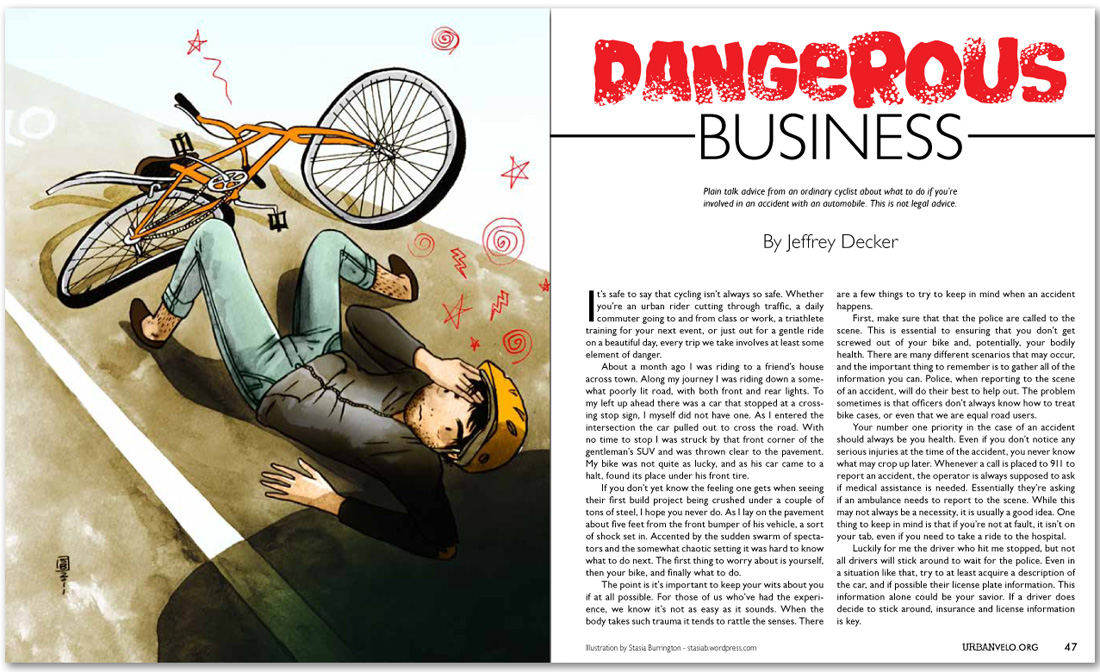


Dangerous Business
Plain talk advice from an ordinary cyclist about what to do if you’re involved in an accident with an automobile. This is not legal advice.
By Jeffrey Decker
Illustration by Stasia Burrington - stasiab.wordpress.com
It’s safe to say that cycling isn’t always so safe. Whether you’re an urban rider cutting through traffic, a daily commuter going to and from class or work, a triathlete training for your next event, or just out for a gentle ride on a beautiful day, every trip we take involves at least some element of danger.
About a month ago I was riding to a friend’s house across town. Along my journey I was riding down a somewhat poorly lit road, with both front and rear lights. To my left up ahead there was a car that stopped at a crossing stop sign, I myself did not have one. As I entered the intersection the car pulled out to cross the road. With no time to stop I was struck by that front corner of the gentleman’s SUV and was thrown clear to the pavement. My bike was not quite as lucky, and as his car came to a halt, found its place under his front tire.
If you don’t yet know the feeling one gets when seeing their first build project being crushed under a couple of tons of steel, I hope you never do. As I lay on the pavement about five feet from the front bumper of his vehicle, a sort of shock set in. Accented by the sudden swarm of spectators and the somewhat chaotic setting it was hard to know what to do next. The first thing to worry about is yourself, then your bike, and finally what to do.
The point is it’s important to keep your wits about you if at all possible. For those of us who’ve had the experience, we know it’s not as easy as it sounds. When the body takes such trauma it tends to rattle the senses. There are a few things to try to keep in mind when an accident happens.
First, make sure that that the police are called to the scene. This is essential to ensuring that you don’t get screwed out of your bike and, potentially, your bodily health. There are many different scenarios that may occur, and the important thing to remember is to gather all of the information you can. Police, when reporting to the scene of an accident, will do their best to help out. The problem sometimes is that officers don’t always know how to treat bike cases, or even that we are equal road users.
Your number one priority in the case of an accident should always be you health. Even if you don’t notice any serious injuries at the time of the accident, you never know what may crop up later. Whenever a call is placed to 911 to report an accident, the operator is always supposed to ask if medical assistance is needed. Essentially they’re asking if an ambulance needs to report to the scene. While this may not always be a necessity, it is usually a good idea. One thing to keep in mind is that if you’re not at fault, it isn’t on your tab, even if you need to take a ride to the hospital.
Luckily for me the driver who hit me stopped, but not all drivers will stick around to wait for the police. Even in a situation like that, try to at least acquire a description of the car, and if possible their license plate information. This information alone could be your savior. If a driver does decide to stick around, insurance and license information is key.